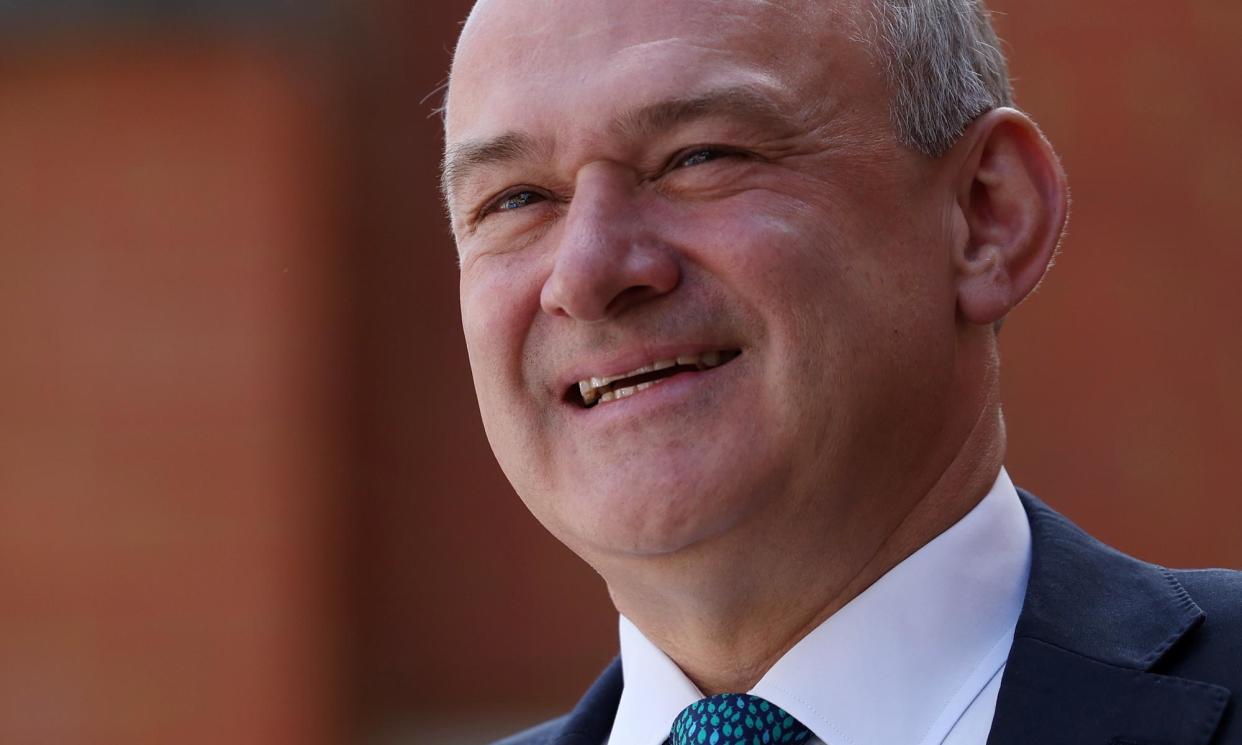Lib Dems to push for cross-party talks on tackling social care

The Liberal Democrats plan to use their best-ever contingent of 71 MPs to push Keir Starmer to begin cross-party talks on a new plan for social care, saying the issue was raised repeatedly by voters during their election campaign.
Lib Dem insiders said Ed Davey’s party, which unseated four cabinet ministers as well as dozens of other senior Conservatives, would also seek to make sure the position of unpaid carers was considered properly by the Labour government.
With two Commons seats yet to declare the party had won 71 seats, above the previous record of 62 under Charles Kennedy’s leadership in 2005. The last time they won more than this was as the Liberal party in 1923, when they were led by Herbert Asquith.
Related: Ed Davey uses bungee jump to hail ‘once-in-a-century election’
Among the Tories they removed were: Gillian Keegan, the education secretary; Alex Chalk, the justice secretary; Lucy Frazer, the culture secretary; and Michelle Donelan, the science minister.
They also won seats against the Conservatives in the constituencies formerly held by three ex-prime ministers: Theresa May, David Cameron and Boris Johnson.
Davey led the Lib Dems’ hugely successful campaign by combining camera-friendly stunts like bungee jumping and falling off a paddleboard with a careful focus on a series of policy areas, one of which was based around carers.
The Lib Dem leader made this a central part of his personal message, releasing an election broadcast which showed Davey at home helping to care for his teenage son, John, who is disabled.
A party source said Lib Dems campaigners were “stunned” at how frequently Davey was stopped on the election trail by other carers explaining their situation, calling it “a cut-through that nobody expected”.
They said: “We won’t be playing party political games with this issue. Instead, it is time for cross-party talks on social care funding, where tough but essential decisions are needed.
“Above all else, unpaid carers must be brought out of the shadows and truly supported. We will make sure that carers cannot be forgotten again by people in power.
“Carers were notably absent from the Labour manifesto. This is a watershed moment for tackling the care crisis. Never before has care been brought to the centre stage of an election campaign.”
Speaking after winning his Kingston and Surbiton seat again by more than 17,000 votes, Davey said many voters had turned to his party for the first time to be their “champions”.
He said: “Well, we’ve heard you – loud and clear. We’ve put your concerns at the heart of our campaign.”
The results vindicated Davey’s decision to narrowly focus resources on a defined number of target seats, the bulk of them held by the Conservatives, even though they failed to oust Jeremy Hunt, the chancellor, in his Surrey seat, falling short by fewer than 1,000 votes.
While their overall vote share rose only marginally from the generally disastrous 2019 result, from 11.6% to 12.2%, the hugely more efficient distribution of votes saw the party win six-and-a-half times as many MPs.
Related: Lib Dems oust four cabinet ministers as they win record number of seats
Other usually ultra-safe Conservative seats did fall, including: Stratford-on-Avon (held in the last election by Nadhim Zahawi with a majority of close to 20,000); Henley, once represented by Boris Johnson; Surrey Heath, formerly Michael Gove’s constituency; and the new seat of Bicester and Woodstock.
A key part of the success came in so-called “blue wall” seats – affluent commuter belt constituencies around London or other cities where more moderate Tory voters were becoming exasperated with the governments of Johnson and then Liz Truss.
Davey celebrated the results by dancing and singing to Sweet Caroline with party activists at an event in central London.
At Lib Dem headquarters, the party’s head of campaigns rang a bell when the threshold of 70 seats was reached, bringing cheers from the party team.
Daisy Cooper, the party’s deputy leader, said Davey’s attention-grabbing election tactics had paid off.
“We’ve said time and again that while we don’t take ourselves that seriously, we do take our politics very seriously,” she told BBC News. “And with every single one of those stunts, there was a very serious message about our plans.”

 Yahoo News
Yahoo News 
